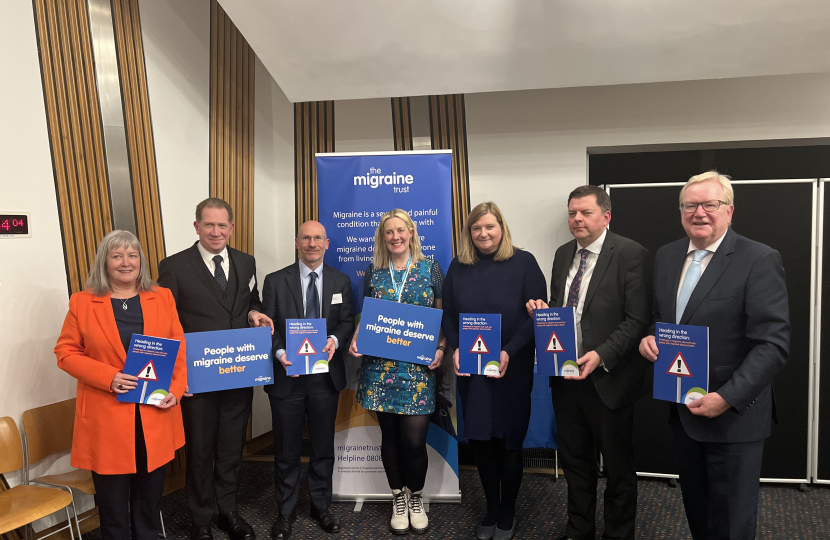
Eastwood MSP, Jackson Carlaw has highlighted the serious impact of migraine on people who have been diagnosed with the condition and the need for better support.
Mr Carlaw’s comments were made during Migraine Awareness Week from 23rd - 29th September and to coincide with worrying new research published by The Migraine Trust about the detrimental impact of the health issue on people who are living with the condition.
The research carried out by the Migraine Trust has found that high numbers of people with migraine report not being believed or taken seriously, including in employment and when accessing healthcare.
The charity surveyed 2,028 people with the condition and discovered that migraine has a much more wide-ranging impact than just the physical head pain often associated with it.
A total of 89 percent of respondents outlined that their mental health had been affected as a result of living with the condition and 34 percent said they experienced thoughts of suicide.
The research also found that 80 percent of survey participants withdraw more from social occasions and 59 percent lost confidence due to suffering from migraine.
In December 2023, Mr Carlaw hosted a Holyrood event for The Migraine Trust and to promote key recommendations from the charity on how to improve patient care such as a national audit of migraine data and a thorough review of the current services on offer.
Across the UK, around 10 million people are believed to be living with migraine including around 780,000 individuals who are resident in Scotland.
Scottish Conservative MSP for Eastwood, Jackson Carlaw said:
“The Migraine Trust carries out essential work and research on the impact of migraine and the recent findings illustrates the need for people who are living with the condition to receive better care.
“The data shows that the condition is considerably more than just a headache and not being taken seriously is having a significant negative impact on the lives of many migraine sufferers.
“For Migraine Awareness Week, I was delighted to stand with the 1 in 7 people who experience the condition and deserve more support.”

